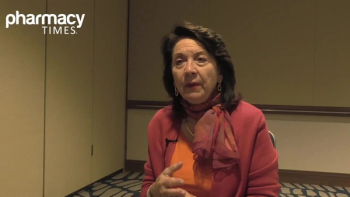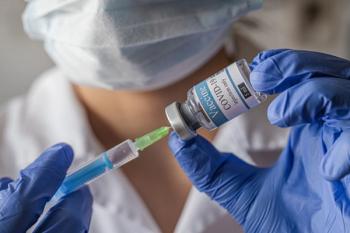
Pharmacists explore estrogen replacement therapy for young women with POI, discussing safe options and alternatives for managing menopause symptoms.

Pharmacists explore estrogen replacement therapy for young women with POI, discussing safe options and alternatives for managing menopause symptoms.

Environmental factors significantly influence the rising rates of type 2 diabetes in children.

The agency announced that human clinical trials will no longer be required in lieu of a comparative analytical assessment to determine biosimilar equivalency with its reference product.

Liposomal vitamin C enhances bioavailability, offering superior absorption and antioxidant benefits compared with traditional forms, promising better health outcomes.

Richard Kovacs, MD, explains how switching from high-sodium to low-sodium oxybate led to meaningful blood pressure reductions and lower cardiovascular risk in patients with narcolepsy.

Heavy workloads, lack of recognition, and stressful environments fuel emotional exhaustion, turnover, and patient safety concerns.

Rajinder Shiwach, MD, MRCPsych, discusses how rapid induction with extended-release buprenorphine improves patient retention and maintains comparable efficacy and tolerability to standard induction methods.

COVID-19 mRNA vaccines enhance immune checkpoint inhibitor effectiveness in cancer therapy, significantly improving survival rates for patients with advanced tumors.

Data from multiple KEYNOTE clinical trials support the sustained survival benefits of pembrolizumab in non–small cell lung cancer (NSCLC).

Missteps in prescribing and counseling can escalate into catastrophic harm and significant financial liability.

Recent research reveals rising cancer rates among younger and older adults, linking obesity to increased incidence.

Pharmacist Care Day showcased UPMC Health Plan’s commitment to whole-person care through free health services, pharmacist-led outreach, and strong community collaborations in Pittsburgh.

Christina Barrington, PharmD, champions pharmacists' vital role in enhancing health care access and quality, advocating for their recognition as essential providers.

In Danish athletes, long-term anabolic androgenic steroid use was associated with progressively worsened cardiovascular outcomes.

The FDA approves a simplified single-injection treatment for ulcerative colitis, enhancing patient experience with monthly dosing convenience.

A new low-carbon albuterol inhaler shows therapeutic equivalence to original options, suggesting reduced emissions and improved sustainability for patients with asthma and other respiratory conditions.

Explore the role of pharmacists in managing menopause-related vasomotor symptoms with innovative non-hormonal therapies like Elinzanetant.

Oncologists increasingly embrace cell and gene therapies, yet barriers like cost and perceptions of risk hinder broader adoption.

Total cholesterol and triglyceride levels were linked to an increased risk of Alzheimer-related declines in cognitive function, whereas high-density lipoprotein cholesterol provided a protective effect.

Expert shares notable findings presented at the 2025 IMS Annual Meeting.

Lawmakers weigh cost concerns, clinical outcomes, and regulatory barriers as access to these medications evolves.

Explore the impact of extrapyramidal symptoms on patients, including drug-induced parkinsonism and dystonia, and the importance of early detection and management.

Explore effective non-hormonal treatment options for menopause-related vasomotor symptoms, including hot flashes and night sweats, with insights from pharmacists.

A phase 2 trial suggests a stepwise regimen using liposomal irinotecan followed by oxaliplatin may improve progression-free survival over standard treatment.

The FDA updates sotatercept's label, enhancing treatment options for pulmonary arterial hypertension and reducing severe clinical events.

Pharmacy professionals should make informed decisions regarding their individual career paths.

Research highlights the link between earlier menopause, cardiac function, and brain health, emphasizing the need for sex-specific dementia risk strategies.

Research highlights the impact of provider type on menopause treatment, revealing a need for standardized education to improve care quality for women.

Language preference significantly impacts access to continuous glucose monitors for type 2 diabetes, revealing critical disparities in diabetes care.

Elinzanetant, the first FDA-approved nonhormonal treatment for menopause-related vasomotor symptoms, offers women a new, effective relief option.